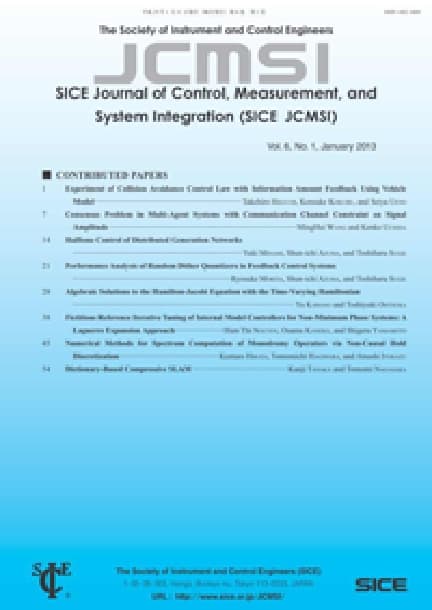Multiple Cooperative Bilateral Teleoperation with Time-Varying Delay
Nam Duc DO, Yusuke YAMASHINA, Toru NAMERIKAWA
pp. 89-96
DOI:
10.9746/jcmsi.4.89Abstract
This paper deals with a passive-decomposition based control of bilateral teleoperation between a single master robot and multiple cooperative slave robots with time varying delay. First, we decompose the dynamics of multiple slave robots into two decoupled dynamics by using the passive-decomposition: the shape-system describing dynamics of the cooperative works and the locked-system representing the overall behavior of the multiple slave robots. Second, we propose a PD control method for bilateral teleoperation to guarantee asymptotic stability of the system with time varying delay. Finally, experimental results show the effectiveness of the proposed teleoperation.









